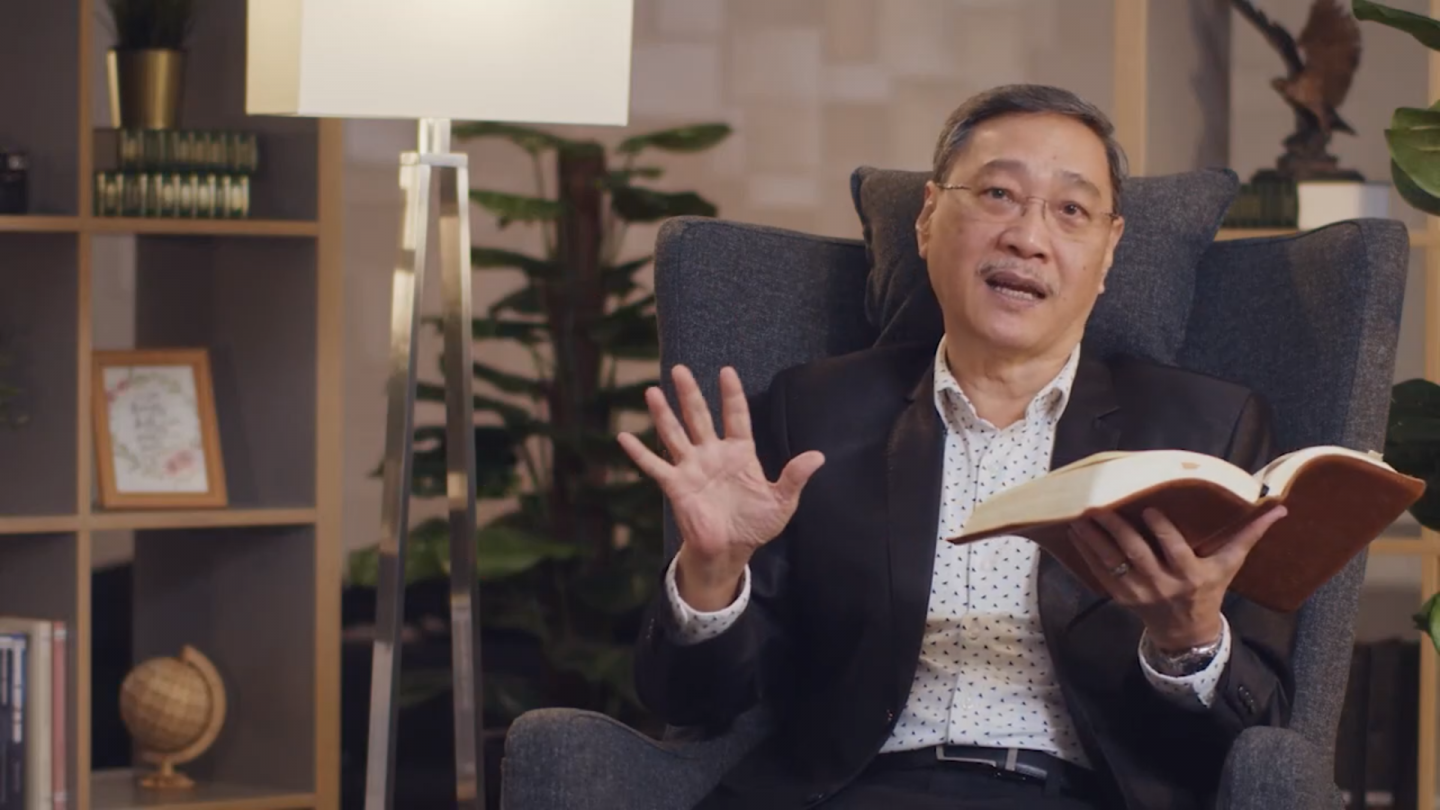How do we live for what is important, not what is urgent? Rev Edmund Chan shares 10 ways to live intentionally, not incidentally
by Tan Huey Ying // September 17, 2020, 7:30 pm

The crisis in discipleship today is not because of a lack of teaching, or learning, but is because of the lack of doing, said Rev Edmund Chan, at the 2020 Intentional Disciple Making Churches (IDMC) Conference.
“Who we are is shaped, not by what we say, but by what we do,” said Rev Edmund Chan, who launched the annual IDMC Conference 26 years ago. “Whole-life discipleship involves effort. Doing is the evidence of listening – you listen, in order to do.”
“The will of God is the litmus test of everything that is ultimately worthwhile and divinely-approved.”
Held online on the first weekend of September, Rev Chan expounded on five aspects of Whole Life Discipleship alongside Covenant Evangelical Free Church’s Senior Pastor Rev Tony Yeo and Rev Barney Lau.
“In life, many things are easier said than done. But, in life, many things are better done than said,” he quipped in the penultimate plenary session titled Unto Every Divine Calling for Our Life. .
But the importance of doing must be cradled by the idea of knowing what is important to do, pointing out that many in the “doing” camp know the former, but fail to grasp the latter and overdo things. “We should not be doing for ‘doing’ sake,” he cautioned.
Pause for clarity
The best leaders, like businessmen, know that they must get to the bottom line – fast. Our bottom line is to do what Christ has commanded: The will of the Father.
“Slow down. Pause in the presence of God. And seek Him until you are clear.”
As a mentor, Rev Chan is often consulted for advice. When faced with complex organisational or business decisions, Rev Chan says it boils down to focussing on God’s leading. “Don’t ask the question, ‘What can I do?’ That is the wrong question. Ask, instead, ‘What must I do?’”
There are many possibilities, but find out what the Lord’s direction and call for you is, he asked.
“Slow down. Pause in the presence of God. And seek Him until you are clear, until there is clarity in what He is calling you to do. Until you know what you must do.”
The will of God
“Throughout Scripture, the will of God is paramount. The will of God is the litmus test of everything that is ultimately worthwhile and divinely-approved.
Jesus came to fulfil the will of God (John 4:34) and Paul defined foolishness as missing the will of God (Ephesians 5:17).
“It is the only thing that truly matters,” said Rev Edmund.
And that is why we must learn and be rooted in the Scriptures because it is there that we find the revealed will of God, he reasoned. Jesus came to fulfil the will of God (John 4:34) and it was the same with the Apostle Paul, who defined foolishness as missing the will of God (Ephesians 5:17).
“To say that God’s will is perfect is to affirm the essential nature of God – you cannot improve a perfection. And since God and His will are perfect, then whole-life discipleship must be one that is unto God’s will for us and every God-directed calling,” he continued.
“But to live out such a calling requires one to live an intentional life.”
Marks of an intentional life
Pushing further, Rev Edmund asked: But what are the marks of an intentional life?
He shared 10 differences between an intentional and an incidental life:
- The intentional life is conscious about the brevity of life; it does not take time for granted. But the incidental life misguidedly assumes the abundance of time and thus takes both time and life for granted.
- The intentional life is conscious that life is a gift of God and seeks to steward it for the glory of God. The incidental life lives a self-centred life unto itself.
- The intentional life invests time to live for what really matters, but the incidental life squanders time, living for one’s indulgences.
- The intentional life lives by well-defined priorities and is meaningfully busy but incidental life is mindlessly busy without any priorities.
- The intentional life is marked by the important but the incidental life is led by the urgent.
- The intentional life is a disciplined and directed life but the incidental life is driven by desires and impulses.
- The intentional life has clear core values but the incidental life lacks clarity in living for what really matters.
- The intentional life embraces deep convictions and pursues excellence. In contrast, the incidental life pursues convenience and ease.
- The intentional life pauses to evaluate life and improve the art of living, but the incidental life does not leave room to pause.
- The intentional life embraces community and adopts wise accountability, but the incidental life pays lip-service to true accountability.
Divine direction
Rev Edmund continued: What exactly is the calling of God?
He pointed to a verse, Micah 6:8 in the Old Testament that is “one of the most important discipleship verses in the whole of the Bible”, one which presents the “bottom-line requirements” of discipleship.
“It is not what God has demanded of you, but what God desires for you.”
“He has told you, O man, what is good; and what does the Lord require of you but to do justice, and to love kindness, and to walk humbly with your God?” (Micah 6:8)
Micah is prophetic leadership at its finest, declared Rev Chan. We are told what is “good” – what is essential for life and living – and not left guessing. “Here are three strands of true discipleship: One, to do justly. Two, to love kindness. Three, to walk humbly with your God.”
In fact, the Hebrew word for “require” is “darash”, a complex and fascinating word which conveys a desire, not a demand, Rev Chan said, likening it to the interactions between lovers.
He clarified: “It is not what God has demanded of you, but what God desires for you.”
Under the shadow of the cross
We cannot approach God without righteousness in doing justly, without lovingkindness in loving mercy and brokenness to walk humbly, concluded Rev Edmund.
And all three of these are found at the Cross of Jesus, who grants us what God darash – desires – for us.
“So what God requires of us is to stand under the shadow of the Cross because it is where Jesus gave His life for us, giving us the newness of life by fulfilling all that God requires of us on our behalf.
“The starting point is at the cross of Jesus (Luke 9:23). From that premise, God calls us to live out our faith, to live out every God-directed calling for our life.
“Take up your cross, and you will have whole life discipleship.
“To live out a whole-life discipleship, return to the Cross.”
Early bird registration is open for Singapore IDMC Conference 2021: Grace and Glory – Five Empowering principles for Kingdom Life. Sign up here.
It takes work to rest: Reverend Edmund Chan on the “strange principle” of rest during Covid-19
Rev Edmund Chan: What will it take to stay loyal to our King?
We are an independent, non-profit organisation that relies on the generosity of our readers, such as yourself, to continue serving the kingdom. Every dollar donated goes directly back into our editorial coverage.
Would you consider partnering with us in our kingdom work by supporting us financially, either as a one-off donation, or a recurring pledge?
Support Salt&Light


